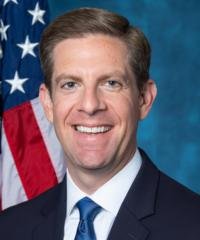
Congressman Mike Levin is proud to represent California's 49th Congressional District, which includes North County San Diego and South Orange County.
Currently serving his second term in the House of Representatives, Levin sits on the House Committee on Natural Resources, the House Select Committee on the Climate Crisis, and the House Committee on Veterans’ Affairs, where he serves as Vice Chair of the Committee and Chair of the Subcommittee on Economic Opportunity.
Levin was raised in South Orange County and attended local elementary and junior high schools. He spent his high school years at Loyola High in Los Angeles, and went on to study at Stanford University, where he served as the student body president. Upon graduation from Stanford, Levin served as a Coro Fellow and then attended Duke University School of Law.
There are approximately 80 locations in 34 states across the country where spent nuclear fuel is stored after it is removed from a commercial nuclear reactor. Additionally, 25 of these sites are co-located with nuclear power plants that are no longer in use, some of which have even been completely dismantled.
The current system of spent nuclear fuel storage is not sustainable, particularly for sites that no longer have operating reactors and could be redeveloped for other beneficial uses. It is also a violation of the promise, codified decades ago, that the federal government would take title to the waste in return for ratepayers' contributions to the Nuclear Waste Fund.
The Spent Nuclear Fuel Solutions Caucus seeks to address the challenges associated with stranded commercial spent fuel across the country. It is a forum for Members who care about solving all commercial spent fuel issues, where Members can come together to make progress regardless of whether or not they have a preferred solution.
In order to inform Member discussion, the caucus invites guests - from government, academia, and more – to share their perspective on solving spent fuel challenges. It also serves as a vehicle through which Members can gather related information from the Department of Energy, the Nuclear Regulatory Commission, and other agencies.